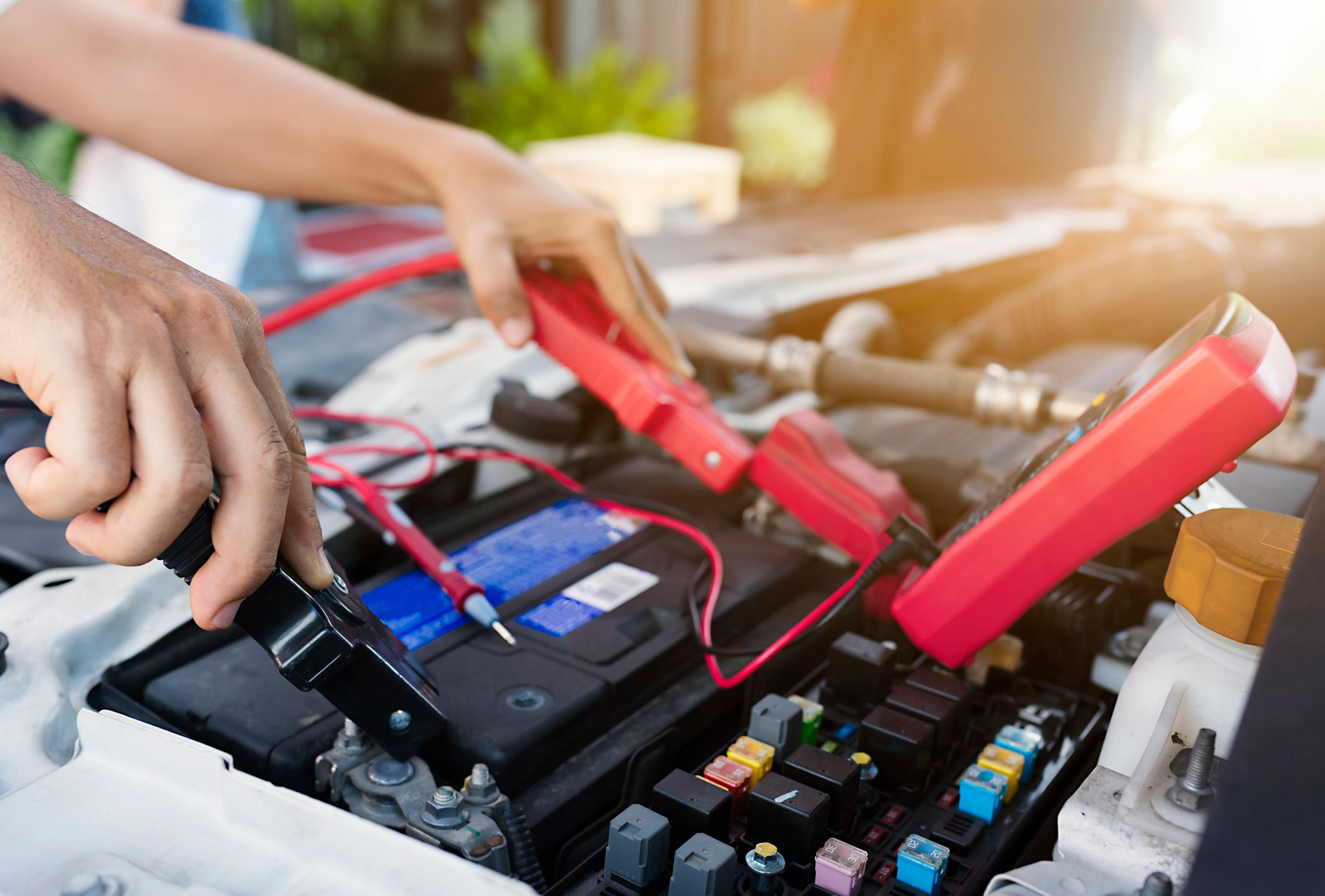November 1, 2024
SIGNS YOUR CAR BATTERY HAS TO BE REPLACED
Car battery has subsisted for over a century now, struggling in quietness, catching all the load of work upon them modestly.
And we frequently never pay much thought to them until they stop working. Because that’s the only point where we worry a little about them.
But have you ever wondered; how exactly do they work?
That’s what we’re here for. So, let’s just get into learning a few facts about the most relevant part of any vehicle.
An automotive car battery is a rechargeable battery that is used to start a motor vehicle. The majority of car batteries use a lead-acid chemical reaction, in which each battery has six cells made up of lead & lead-dioxide that delivers 2-volts of energy. The plates are immersed in sulphuric acid that assists in stimulating the response among the two plates.
The acid then produces a reaction on the lead dioxide plate, making it to create ions which then react to the adjacent plate to produce hydrogen and lead sulfate.
This reaction helps in generating electrons that race around the plate to generate electricity.
The electric current generated then slides out of the battery terminals to commence your engine and play the radio.
Dealing with a car battery that is not as strong as it used to be is concerning. It can lead to a long list of issues car owners don’t want to face while driving.
Here is a look at five common signs that your car battery has to be changed as soon as possible
1) Difficulty Turning On The Vehicle
When the car has to be turned on, it will start sputtering. This is a sign the car battery is not charging as it needs to and that means it is not driving power to the rest of the vehicle. At first, this is not going to be as noticeable. Over time, the sputtering will continue to get longer and longer. This is frustrating and a clear-cut sign that battery is losing juice.
2) Poor Performance In Cold Weather
When it is cold outside, the battery is not warmed up. If the battery is not at 100%, this is going to be a major concern because cold weather puts a tremendous amount of pressure on this part of the vehicle.
If it does not turn on easily during the winter, this is a sign it’s time to change the battery.
3) Electrical Malfunctions
If the doors are not locking properly or the windows aren’t going up using the button, this is likely due to the car battery not powering them effectively.
It’s best to change the battery when this happens because it will get worse with time.
4) Dashboard Lights & Lighting Issues
When the dashboard lights start flashing, this is a sign the battery is dying. Several issues arise and that is when warning lights show up on the dashboard.
This can include the alternator not returning charge, which happens when a battery is weak.
5) Strange Odor
When there is a distinct smell coming from the vehicle, it is a common sign there is something wrong with the battery. This smell is often referred to as being like “rotten eggs” and it is a smell that continues to worsen with time.
The reason this happens has to do with the battery leaking gas. The sulfuric acid in the battery starts to come out. This is a major sign that a change is required right away.
For the average person, diagnosing which part of these two systems could be causing the problem can be difficult. The experts at Absolute Car Care can help.

The Average Car Battery Life
The average car battery lasts about 3 to 5 years, but its lifespan can vary based on several factors, including:
Factors Affecting Battery Life:
- Driving Habits:
- Frequent short trips: Starting the engine uses a significant amount of battery power. If your trips are too short, the alternator may not have enough time to recharge the battery fully.
- Infrequent use: If a car isn’t driven regularly, the battery can lose charge over time, leading to sulfation (crystal buildup on battery plates).
- Climate:
- Hot weather: Heat accelerates the evaporation of battery fluid and causes internal corrosion, reducing battery life.
- Cold weather: While cold doesn’t damage batteries, it reduces their efficiency, making them more likely to fail if already weak.
- Battery Type and Quality:
- Higher-quality batteries tend to last longer. Opt for a battery with a good warranty and specifications that match your car’s requirements.
- Maintenance:
- Regularly check the battery terminals for corrosion.
- Ensure the battery is securely mounted to avoid vibration damage.
- Keep the battery charged and avoid letting it fully discharge.
- Electrical Load:
- High demands from electronics, such as heated seats, navigation systems, and infotainment systems, can drain the battery faster.
Signs Your Battery Might Be Failing:
- Slow engine crank.
- Dim headlights or interior lights.
- Warning light on the dashboard.
- Corrosion around terminals.
- A sulfur-like (rotten egg) smell near the battery.
How to Extend Battery Life:
- Minimize exposure to extreme temperatures.
- Drive regularly and for longer distances to keep the battery charged.
- Clean and inspect the battery terminals.
- Avoid leaving lights or accessories on when the engine is off.
If your car battery is approaching the 3-year mark, it’s wise to have it tested during routine maintenance to avoid unexpected failures.
